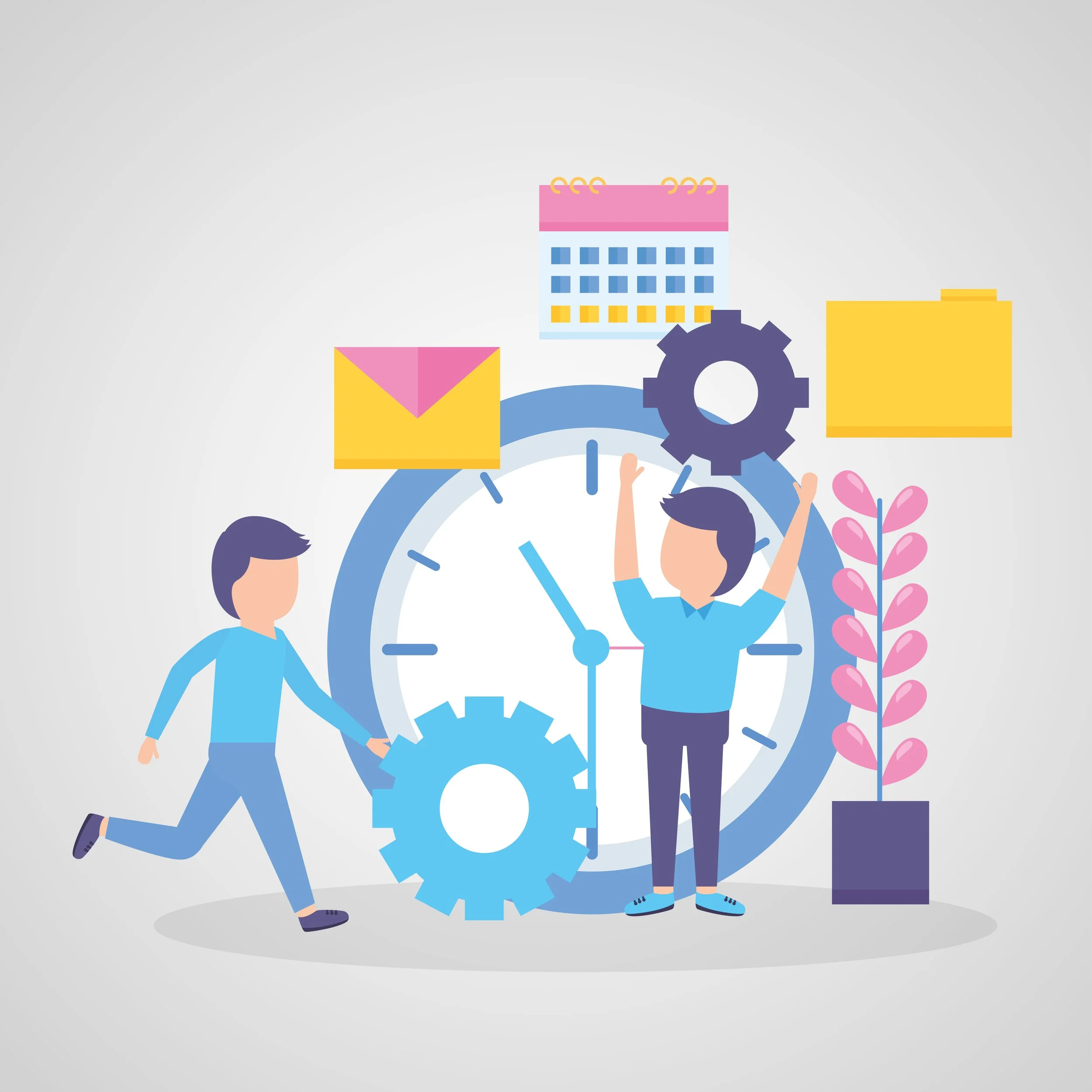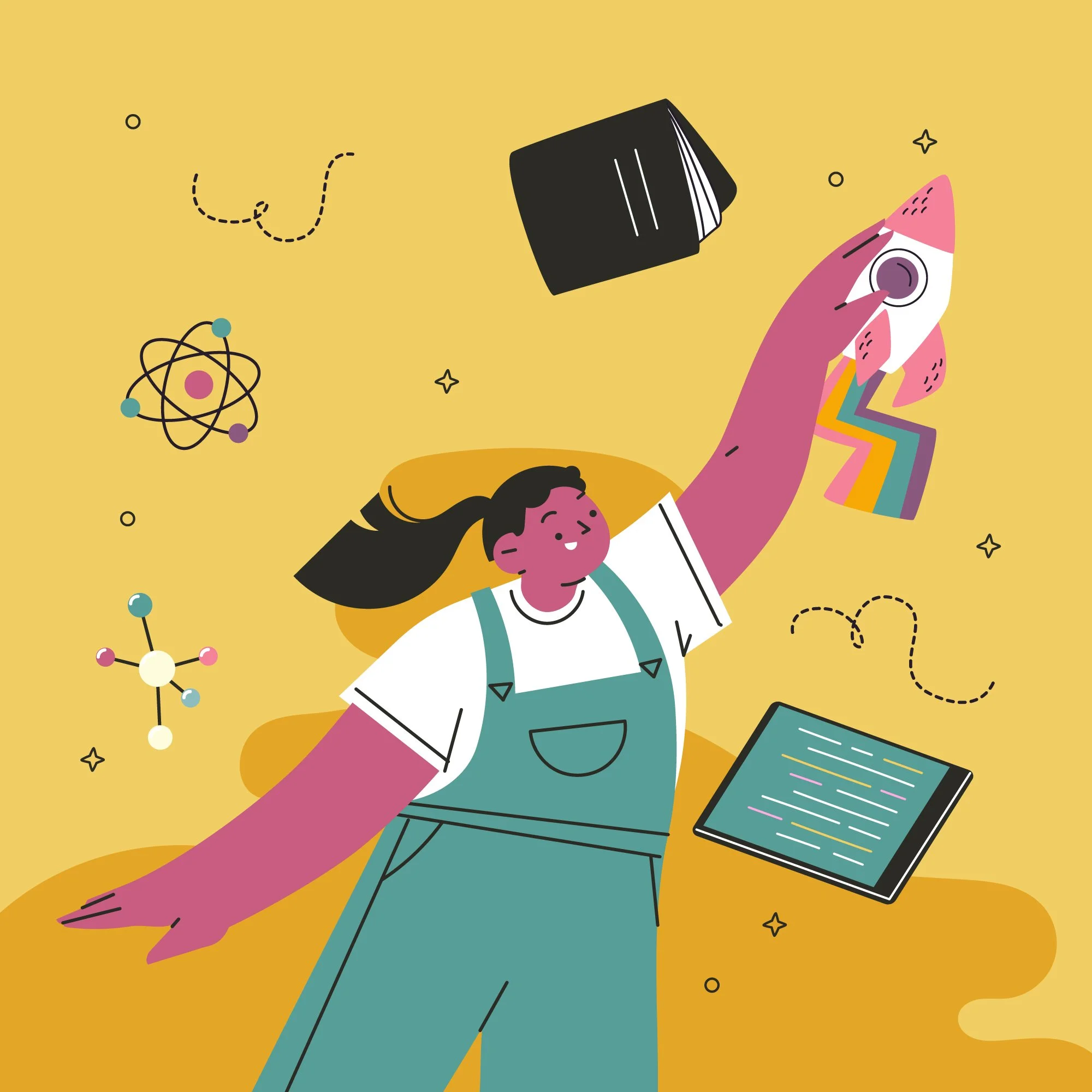Your Child Isn’t Lazy — Here’s What’s Really Behind the Homework Battles
What if the key to unlocking your child's potential isn't pushing harder, but creating safety first?
Recently, our Young Scholar's Academy community had the privilege of learning from Kara Scanlon, an educational therapist whose personal journey with dyslexia and ADHD has shaped her revolutionary approach to supporting neurodivergent learners. Her message was both validating and transformative: the path to academic success isn't through more pressure, but through deeper understanding of how our children's brains actually work.
When Lived Experience Meets Professional Expertise
Kara's story begins at age 5 with a dyslexia diagnosis, followed by an ADHD diagnosis at 27. This personal experience of being a student who needed significant support has profoundly shaped her practice as an educational therapist. Having walked in her students' shoes, she brings fierce determination to ensuring every child gets the right support as quickly as possible.
Her approach is beautifully holistic, sitting at the intersection of three critical areas: psychoeducational support, social-emotional support, and academic support. Her ultimate goal extends far beyond high school graduation—she wants students to deeply understand how their brains work and develop the self-advocacy skills they'll need to navigate the world successfully.
The Executive Function Reality Check
Let's start with a reality check that every parent of a gifted or 2e child needs to hear: that seemingly simple task of turning in homework actually involves approximately 15-20 discrete executive function steps. Did they write down the assignment? Remember what it was? Bring the right materials home? Understand the questions? Do the work? Put it in their backpack? Remember to take it out in class? Hand it to the teacher?
For neurotypical students, these steps may have become automatic through years of practice. For our neurodivergent kids, they may just be starting to build these neural pathways.
The 6 Executive Function Components
Activation: Start with listing tasks, not doing them
Focus: Check emotional state first - learning requires safety
Effort: Build tolerance gradually, start where they actually are
Processing Speed: Match your pace to theirs, adjust throughout the day
Emotion Regulation: Your regulation comes first, then co-regulation
Memory: Reduce anxiety to unlock memory access
Remember: These skills develop on each child's timeline, not ours.
The Power of Emotional Safety in Learning
Perhaps Kara's most profound insight is that learning requires a specific emotional state. If we don't feel safe, we can't access that state of openness and curiosity that learning requires. This reframes everything about how we approach our struggling learners.
She shared the example of a student with echolalia who unconsciously hums when she's comfortable and ready to learn. This humming became a reliable indicator that the student was emotionally regulated and ready for challenging academic work.
Practical Strategies That Actually Work
The Third-Party Solution
One of the most liberating concepts Kara shared was the importance of bringing in neutral third parties for academic support. Even excellent parents will naturally carry emotional history with their children that can interfere with academic instruction. This isn't about parenting quality—it's about preserving the sacred parent-child relationship for what it should be: safety, nurturing, and unconditional love.
Brain Breaks as Strategy, Not Weakness
Regular breaks should be built into work sessions before overwhelm occurs, not used as rescue interventions after meltdowns
What might look like avoidance or defiance may actually be the body's attempt to regulate and meet basic needs that have been ignored during intense focus periods
Movement and preferred activities create the optimal neurological conditions for learning
The Walking Meeting Technique
Kara revealed a brilliant strategy: have difficult conversations while walking or during preferred activities. This approach helps create emotional safety and secure attachment even when discussing challenging topics, as the secondary activity helps regulate the nervous system.
Starting with Sleep
Often, the biggest executive function challenges trace back to one foundational issue: sleep. When sleep patterns are disrupted, every aspect of executive functioning suffers—focus, memory, emotional regulation, and frustration tolerance all become compromised. Focus on the first domino—the one change that creates a cascade of positive effects.
Redefining Success: What the Research Actually Shows
Here's what might surprise you: A longitudinal study by the Frostig Center found that academic success had nothing to do with memorizing math facts or academic content. Instead, successful outcomes correlated with:
Self-awareness
Proactivity
Perseverance
Goal setting
Presence and use of support systems
Emotional coping strategies
Success doesn't require elite college admission, high-paying careers, or traditional academic achievements. True success should center on your child's happiness, fulfillment, and ability to navigate the world authentically.
The Reality We Need to Address
Students with executive function challenges face up to 20,000 corrective or negative comments by age 10. Research shows healthy relationships need 5 positive comments for every negative one. Our neurodivergent kids are starting with a significant deficit.
But here's what Kara learned from working with these remarkable young people: they immediately detect inauthentic praise. The solution isn't fake positivity, but finding genuine moments to acknowledge their efforts:
Recognizing when they show up despite difficulties
Celebrating increased work tolerance compared to previous sessions
Sometimes simply finding one authentic thing to appreciate about them
Moving Forward: One Habit at a Time
The path forward isn't about overhauling everything at once. Kara shared that it took her partner two months to learn to consistently put his keys by the front door—and that's an adult brain. Our kids need the same patience and incremental approach.
Start with one domino. Maybe it's:
A consistent wake-up time
A designated homework spot
A post-dinner walk
A simple morning routine
The goal isn't perfection—it's building one sustainable habit that creates space for the next one.
What Actually Matters
If you're reading this and feeling overwhelmed by your child's struggles, please hear this: You don't have to be everything to your child. It's better if you're not. Your job is to love them unconditionally, advocate fiercely for their needs, and help them build a support team.
Research shows that showing up emotionally regulated and present just 40% of the time is sufficient for children to develop into emotionally grounded adults. You don't need to be perfect—you need to be real, consistent, and willing to learn alongside your child.
Your child's struggles with executive function don't define their potential or their worth. Every child has their own timeline for developing these skills, and with patience, understanding, and the right support, meaningful progress is absolutely possible. The key is meeting them where they are, building safety first, and celebrating every small victory along the way.
About Kara Scanlon
Kara Scanlon is a licensed Educational Therapist with a boutique private practice in Northern California. Diagnosed with dyslexia at age 5 and ADHD at 27, she brings both personal experience and professional expertise to her work with neurodivergent students.
A former physics and math major, Kara specializes in supporting middle school through college students with executive functioning, organization, study skills, and what she calls "writing organization." She serves on the Leadership Board of the Association of Educational Therapists (AET) and is passionate about complex case management, working collaboratively with parents, teachers, administrators, and allied professionals.
Kara offers free initial consultations and is committed to ensuring every student finds the right educational therapist fit, even if it's not with her. Her approach emphasizes building self-awareness, advocacy skills, and understanding of how each student's unique brain works best. Find out more about Kara and the Scanlon Educational Center here.
About Young Scholar's Academy
Young Scholar's Academy serves gifted, twice-exceptional (2e), and neurodivergent learners through innovative online programming designed specifically for their unique needs. Our community of 400+ families connects students with their intellectual and social peers through small-group classes, social clubs, and specialized support programs.
Experience this supportive, safety-first approach firsthand in our fall courses, where executive function skills develop naturally through engaging content and meaningful peer connections. From AP coursework to Among Us gaming clubs, our 150+ offerings run year-round, providing the academic challenge and social connection these remarkable young people need to thrive—all while building the self-awareness, goal-setting, and support systems that research shows actually matter for long-term success.
Learn more about our fall enrollment and upcoming events here.





